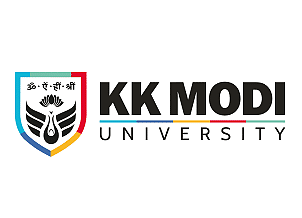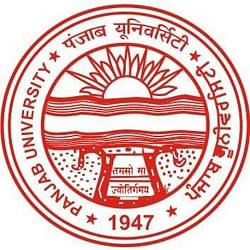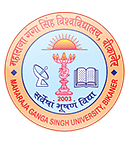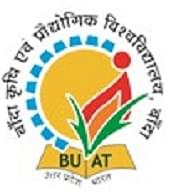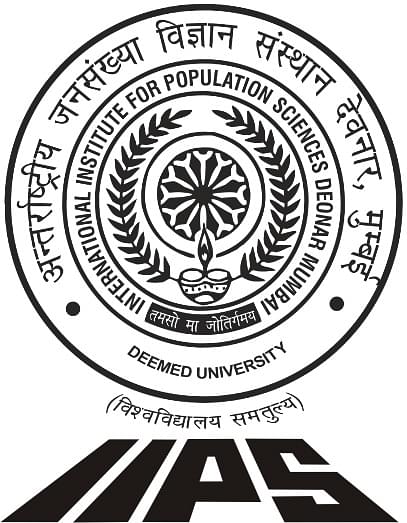Introduction about Ph. D in Naturopathy &
Yoga
PHD in Naturopathy & Yoga from best
collegeis an
advanced academic degree program designed to explore the principles, practices,
and therapeutic applications of naturopathic medicine and yoga therapy. This interdisciplinary
field integrates traditional healing modalities with modern scientific
knowledge to promote health and well-being holistically.
In a PhD
program in Naturopathy & Yoga, students delve deeply into the theoretical
foundations and practical applications of naturopathic medicine and yoga
therapy. They study topics such as herbal medicine, nutrition, hydrotherapy,
physical medicine, mind-body medicine, and lifestyle counseling, as well as the
philosophy, anatomy, physiology, and psychology of yoga.
The
curriculum typically includes advanced coursework, independent research, and
dissertation work. Students may take courses in areas such as naturopathic
philosophy and principles, diagnostic techniques, therapeutic modalities,
research methods, and professional ethics. They also engage in clinical
training and practical experiences to develop clinical skills and gain hands-on
experience in patient care.
One of
the key components of a PhD in Naturopathy & Yoga is the doctoral
dissertation, where students conduct original research under the guidance of a
faculty advisor. This research may involve investigating the efficacy and
safety of naturopathic treatments, exploring the mechanisms of action of yoga
therapy, or examining the integration of naturopathic and conventional medical
approaches to patient care.
Graduates
of PhD programs in Naturopathy & Yoga are well-equipped to pursue careers
in academia, research institutions, healthcare clinics, wellness centers, and
private practice. They may work as professors, researchers, clinicians,
consultants, or advocates for integrative healthcare, contributing to
advancements in the field and promoting health and healing through natural and
holistic approaches.
Overall,
a PhD in Naturopathy & Yoga offers students a unique opportunity to become
leaders and innovators in the field of natural medicine and holistic health,
blending ancient wisdom with modern science to improve the health and
well-being of individuals and communities.
What is admission process for Ph. d in
Naturopathy & Yoga?
The admission process 2024 for PhD in Naturopathy & Yogacan vary depending on the
specific requirements of the university or institution offering the program.
However, here's a general overview of the typical admission process:
Research
and Identify Programs: Begin by researching universities and institutions that offer PhD
programs in Naturopathy & Yoga or related fields. Look for programs that
align with your research interests and career goals. Consider factors such as
faculty expertise, research facilities, and funding opportunities.
Meet
Admission Requirements: Review the admission requirements for each program you're interested
in. These requirements often include:
A
master's degree in naturopathic medicine, yoga therapy, alternative medicine,
holistic health, or a related field. Some programs may accept applicants with a
bachelor's degree, particularly if they have relevant professional experience.
A strong
academic record, usually with a minimum GPA requirement.
Relevant
coursework in areas such as biology, anatomy, physiology, psychology, and
nutrition.
Standardized
test scores (e.g., GRE) if required.
Letters
of recommendation from academic or professional references who can speak to
your academic abilities, research potential, and suitability for doctoral
studies.
A
statement of purpose outlining your research interests, academic background,
career goals, and reasons for pursuing a PhD in Naturopathy & Yoga.
A resume
or curriculum vitae (CV) detailing your educational background, research
experience, publications, and relevant work experience.
Prepare
Application Materials: Gather all required application materials and ensure they are complete
and well-prepared. This may include transcripts, standardized test scores,
letters of recommendation, a statement of purpose, a resume or CV, and any
additional supplemental materials requested by the program.
Submit
Applications:
Complete and submit your applications by the deadlines specified by each
program. Pay close attention to application deadlines and any additional
requirements or supplemental materials requested by the program.
Interview
(if required):
Some programs may require an interview as part of the admissions process. If
selected for an interview, be prepared to discuss your research interests,
academic background, and career aspirations.
Notification
of Admission:
After reviewing applications, the admissions committee will notify applicants
of their admission status. If admitted, you may receive an offer letter
outlining any funding offers, such as assistantships or fellowships, and any
additional requirements for enrollment.
Acceptance
and Enrollment:
If you receive an offer of admission, carefully review the terms and conditions
of acceptance, including any deadlines for accepting the offer and submitting
enrollment deposits. Once you accept the offer, you can proceed with the
enrollment process, which may include registering for classes and attending
orientation programs.
It's
essential to start the application process early, gather all required
materials, and meet all application deadlines. Additionally, reaching out to
faculty members whose research aligns with your interests can be beneficial, as
they may provide guidance on the application process and may even be willing to
support your application.
What is eligibility for Ph. d in Naturopathy
& Yoga ?
The eligibility criteria for a PhD in
Naturopathy & Yoga can vary depending on the specific
requirements of the university or institution offering the program. However,
here are some common eligibility requirements:
Educational
Background: Most
PhD programs in Naturopathy & Yoga require applicants to have a strong
educational background in a relevant field. This may include a master's degree
in naturopathic medicine, yoga therapy, alternative medicine, holistic health,
or a related discipline. Some programs may accept applicants with a bachelor's
degree, particularly if they have relevant professional experience.
Minimum
GPA: Many
programs have a minimum GPA requirement for admission. The specific GPA cutoff
may vary depending on the institution and program, but applicants are generally
expected to have a high academic standing.
Relevant
Coursework:
Applicants may be required to have completed relevant coursework in areas such
as biology, anatomy, physiology, psychology, nutrition, herbal medicine, and
alternative healing modalities. Some programs may specify prerequisite courses
or competencies that applicants must have completed.
Work
Experience:
While not always mandatory, some programs prefer applicants with relevant
professional experience in naturopathic medicine, yoga therapy, holistic
health, or a related field. This experience may be gained through employment in
healthcare clinics, wellness centers, yoga studios, or other healthcare or
wellness-related settings.
Letters
of Recommendation:
Most PhD programs require letters of recommendation from academic or
professional references who can speak to your academic abilities, research
potential, and suitability for doctoral studies. These letters typically come
from professors, employers, or supervisors who are familiar with your work and
qualifications.
Statement
of Purpose:
Applicants are typically required to submit a statement of purpose or personal
statement outlining their research interests, academic background, career
goals, and reasons for pursuing a PhD in Naturopathy & Yoga. This statement
helps admissions committees assess your motivation and fit for the program.
Standardized
Test Scores:
Some programs may require applicants to submit scores from standardized tests
such as the GRE (Graduate Record Examination) or equivalent exams. However,
this requirement is not universal, and some programs may waive the GRE
requirement or place less emphasis on test scores.
Interview
(if required):
Some programs may require an interview as part of the admissions process. If
selected for an interview, be prepared to discuss your research interests,
academic background, and career aspirations.
It's
important to review the specific eligibility criteria and application
requirements for each PhD program you're interested in to ensure you meet all
the necessary qualifications before applying. Additionally, contacting the
admissions office or program coordinator for clarification on any requirements
can be helpful.
What is syllabus of Ph.d in Naturopathy &
Yoga ?
The syllabus for PhD in Naturopathy
& Yogacan vary depending on the specific focus areas of the
program, the research interests of the faculty members, and the requirements
set by the institution. However, here's a broad overview of potential topics
that may be covered in a PhD program in Naturopathy & Yoga:
Foundations
of Naturopathic Med+icine:
History
and philosophy of naturopathic medicine
Principles
of naturopathic medicine: Vis Medicatrix Naturae (the healing power of nature),
Tolle Causam (identify and treat the root cause), Tolle Totem (treat the whole
person), Docere (doctor as teacher), and Praevenire (prevention)
Naturopathic
diagnostic techniques: physical examination, clinical assessment, laboratory
testing, and assessment of lifestyle factors
Integrative
Approaches to Health and Wellness:
Integrative
medicine models and approaches
Complementary
and alternative therapies: herbal medicine, homeopathy, hydrotherapy,
nutritional medicine, traditional Chinese medicine, and Ayurveda
Lifestyle
medicine and preventive healthcare: nutrition, exercise, stress management,
sleep hygiene, and mindfulness practices
Yoga
Philosophy and Practice:
History
and philosophy of yoga: Patanjali's Yoga Sutras, Hatha Yoga Pradipika, Bhagavad
Gita, and Upanishads
The
Eight Limbs of Yoga: Yamas (ethical principles), Niyamas (personal
observances), Asanas (physical postures), Pranayama (breath control),
Pratyahara (withdrawal of the senses), Dharana (concentration), Dhyana
(meditation), and Samadhi (union with the divine)
Yoga
therapy principles and techniques: asana practice, pranayama techniques,
meditation practices, and yoga nidra
Research
Methods in Naturopathy & Yoga:
Research
methodologies: quantitative, qualitative, and mixed-method approaches
Research
design: experimental, quasi-experimental, observational, and case study designs
Data
collection methods: surveys, interviews, focus groups, observations, and
archival research
Data
analysis techniques: statistical analysis, thematic analysis, content analysis,
and grounded theory
Clinical
Practice and Case Studies:
Clinical
assessment and patient management in naturopathic medicine and yoga therapy
Case
studies and clinical decision-making: integrating naturopathic principles and
yoga practices in patient care
Ethical
and legal considerations in naturopathic and yoga therapy practice
Advanced
Topics in Naturopathy & Yoga:
Specialized
areas of study based on faculty expertise and student interests, such as:
Naturopathic
oncology
Women's
health
Pediatrics
Geriatrics
Mental
health
Chronic
disease management
Sports
medicine
Dissertation
Research and Writing:
Independent
research under the guidance of a faculty advisor, culminating in the completion
of a doctoral dissertation
Research
proposal development, data collection, data analysis, and dissemination of
research findings
It's
important to note that the specific syllabus and coursework requirements can
vary between institutions and may be tailored to meet the needs and interests
of individual students pursuing a PhD in Naturopathy & Yoga. Prospective
students should consult with the program coordinator or faculty members to
obtain detailed information about the curriculum and research opportunities
available in a specific program.








